Publications
Articles, publications, books, tools and multimedia features from the U.S. Institute of Peace provide the latest news, analysis, research findings, practitioner guides and reports, all related to the conflict zones and issues that are at the center of the Institute’s work to prevent and reduce violent conflict.
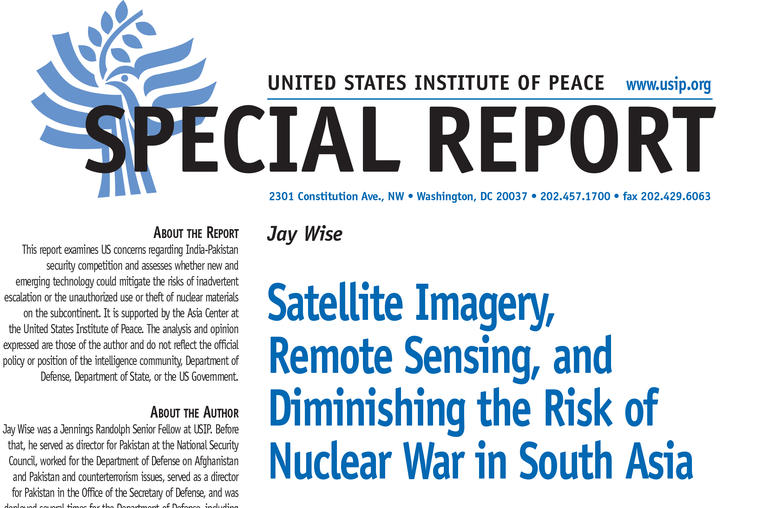
Satellite Imagery, Remote Sensing, and Diminishing the Risk of Nuclear War in South Asia
This report examines U.S. concerns regarding India-Pakistan security competition and assesses whether new and emerging technology could mitigate the risks of inadvertent escalation or the unauthorized use or theft of nuclear materials on the subcontinent.
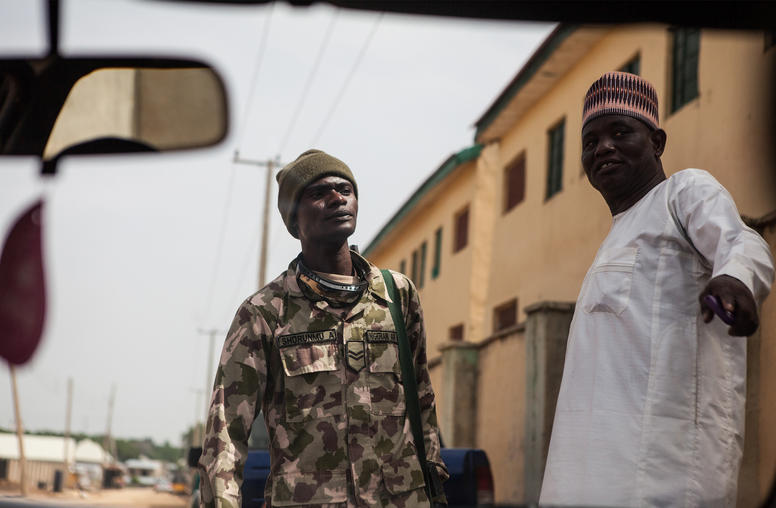
Civilian-Led Governance and Security in Nigeria After Boko Haram
Focusing on northeast Nigeria and the Lake Chad Basin, this Special Report outlines the rise of the Boko Haram insurgency in Nigeria and the security and governance challenges in the wake of its possible decline.
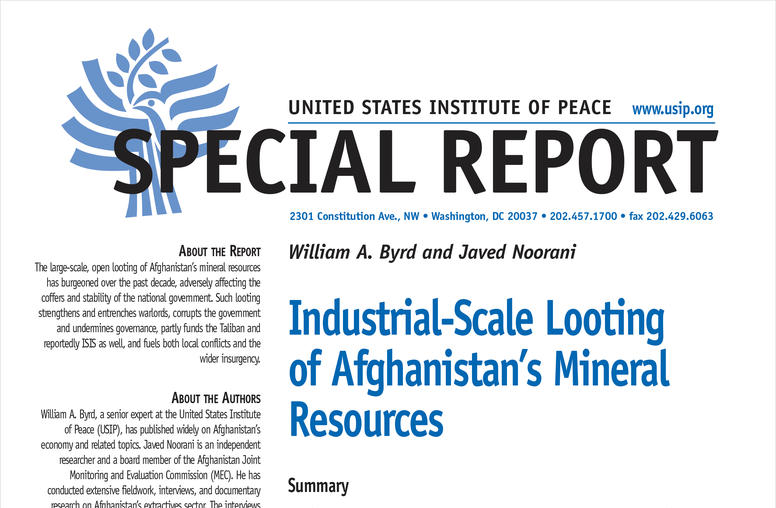
Industrial-Scale Looting of Afghanistan’s Mineral Resources
Afghanistan has been plagued by large-scale, open looting of mineral resources, involving significant mining operations, bulk transport of minerals along main roads, and crossing the border at just a few, government-controlled points. This mineral looting, amounting to hundreds of millions of dollars per year, involves widespread corruption, entrenches warlords and their networks, and fuels both local conflicts and the wider insurgency in Afghanistan. The government needs to begin to get a better handle on resource exploitation and to collect more substantial royalties and taxes from ongoing mining activities.
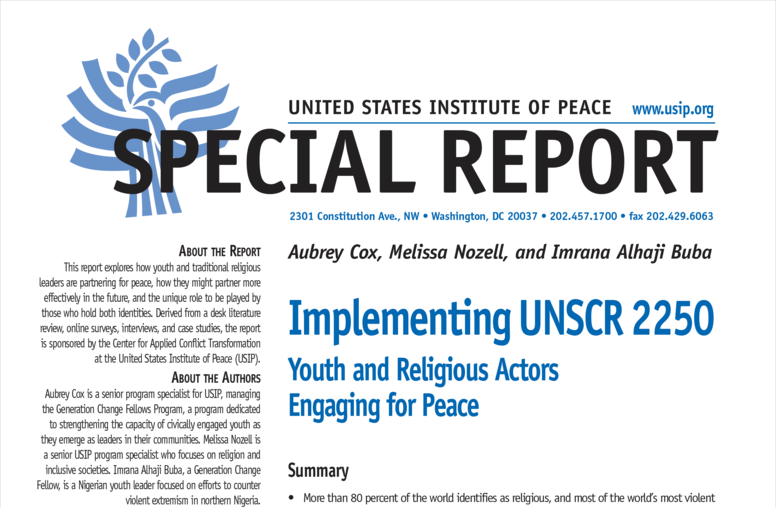
Implementing UNSCR 2250
In the context of UN Security Council Resolution 2250 on Youth, Peace, and Security, this report examines collaborations between youth and religious leaders in conflict-affected states. Using case studies, surveys, and interviews, it highlights the gaps, challenges, and opportunities for how religious actors and youth can and do partner effectively in the face of violent conflict.
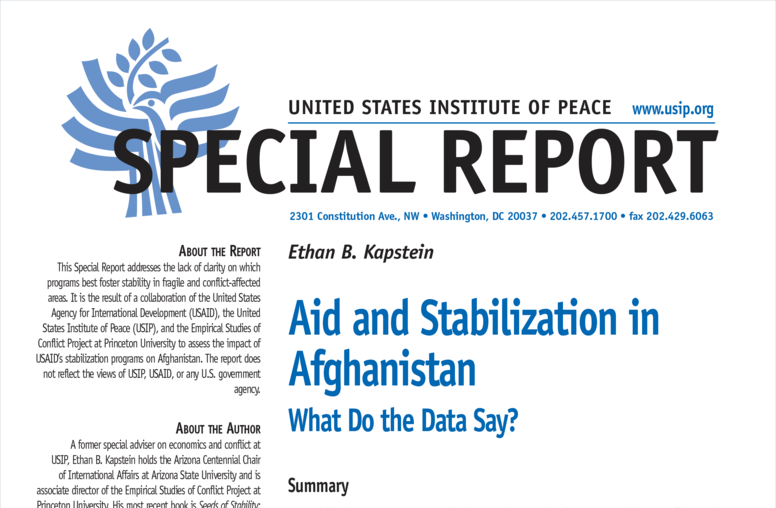
Aid and Stabilization in Afghanistan
The question for international assistance efforts in fragile and conflict-affected countries is the extent to which aid programs are associated with changes in key metrics, including security, popular support for the government, community cohesion and resilience, population health, economic well-being, and internal violence. With an eye to lessons learned for the future, this report examines USAID stabilization programming in Afghanistan, focusing on whether it reduced violence, increased support for the government, and promoted other desirable political and economic outcomes.
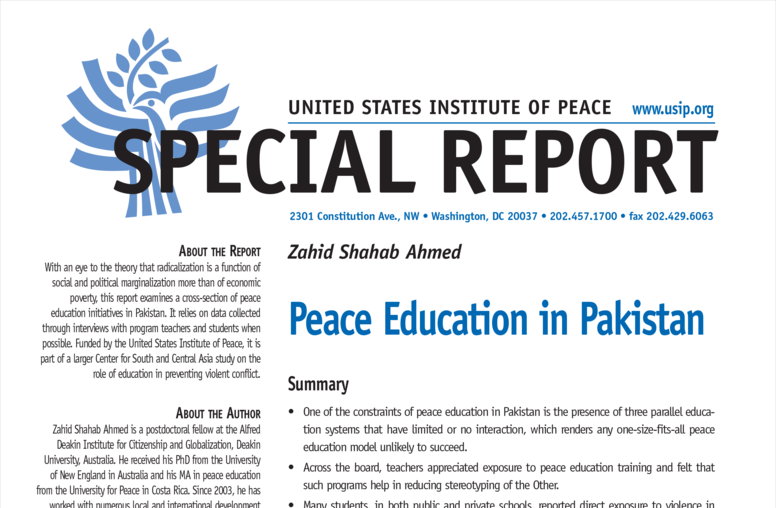
Peace Education in Pakistan
Virtually every country in South Asia faces militancy and conflict to some extent. Pakistan has been especially prone. Peace education addresses the root causes of conflict and is thus a sustainable long-term solution in conflict resolution and prevention efforts. This report examines nine representative peace education initiatives in Pakistan to better understand what types of interventions were most effective, the differences and similarities between peace education programs and curricula in schools and madrassas, and what the peacebuilding field can draw from the selected case studies.
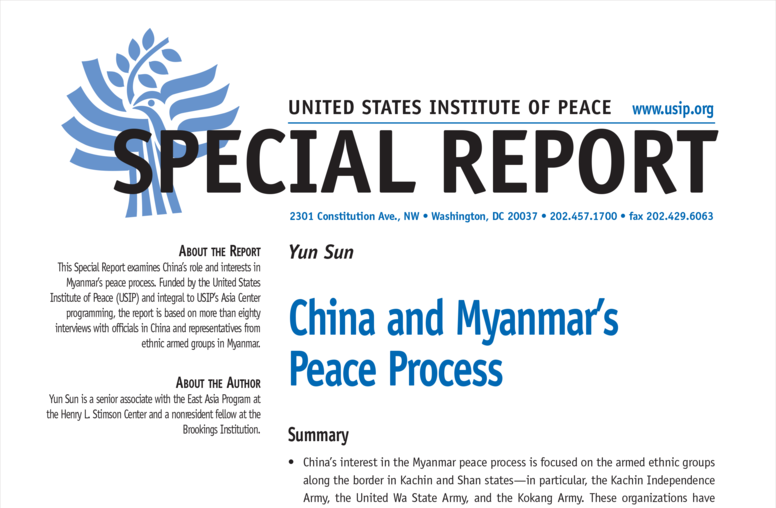
China and Myanmar’s Peace Process
For multiple historical, ethnic, geographic, political, and economic reasons, China has been and will remain an integral player in Myanmar’s internal peace process, particularly regarding the ethnic armed groups in northern Myanmar. Informed by numerous interviews in both China and Myanmar, this Special Report examines China’s positions, policies, and role in that process.
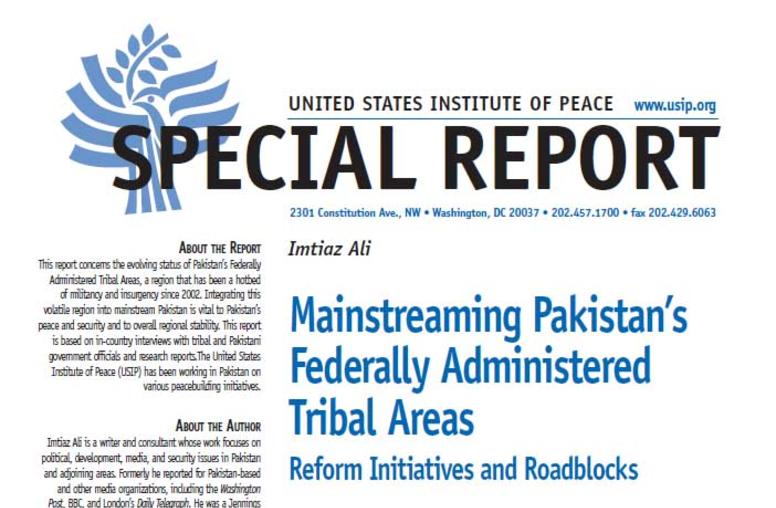
Mainstreaming Pakistan’s Federally Administered Tribal Areas
Pakistan’s government has recently approved mainstreaming of the Federally Administered Tribal Areas (FATA) in an effort to bring the FATA region within the legal and governance structures of the rest
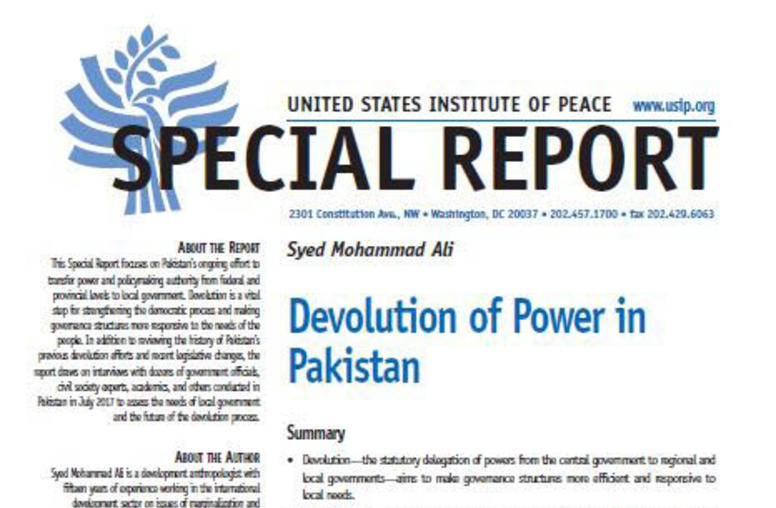
Devolution of Power in Pakistan
Passage of the eighteenth amendment to Pakistan’s constitution in 2010 was rightly hailed as a major accomplishment. Not only did it devolve significant powers from the central government to the provinces, it also mandated the formation of local governments to bring government closer to the people. It took half a decade for the provinces to set up local governments—and real decision-making authority and financial resources have been even slower to arrive. In this Special Report, Syed Mohammad Ali takes stock of Pakistan’s devolution process and why its success is critical to the long-term prospects of democracy and the cultivation of new generations of democratic leaders.
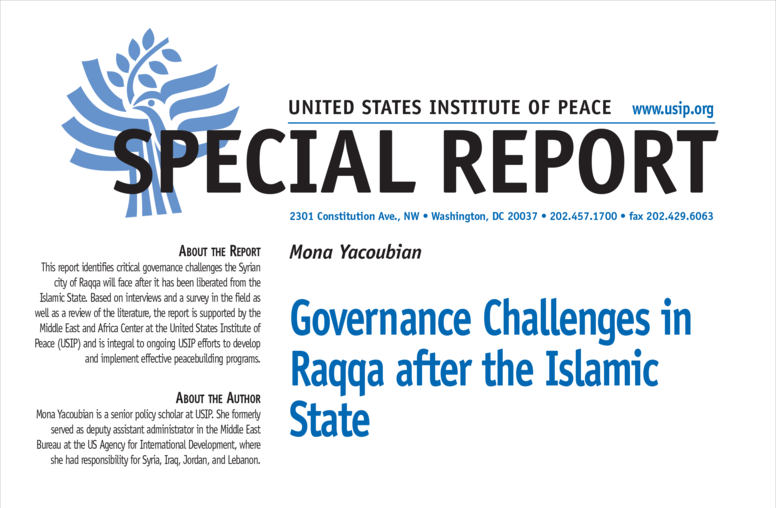
Governance Challenges in Raqqa after the Islamic State
The fall of the Syrian city of Raqqa—the capital of the self-proclaimed Islamic State (IS)’s caliphate—will be a critical defeat for IS. Yet the success of the counter-campaign will ultimately...